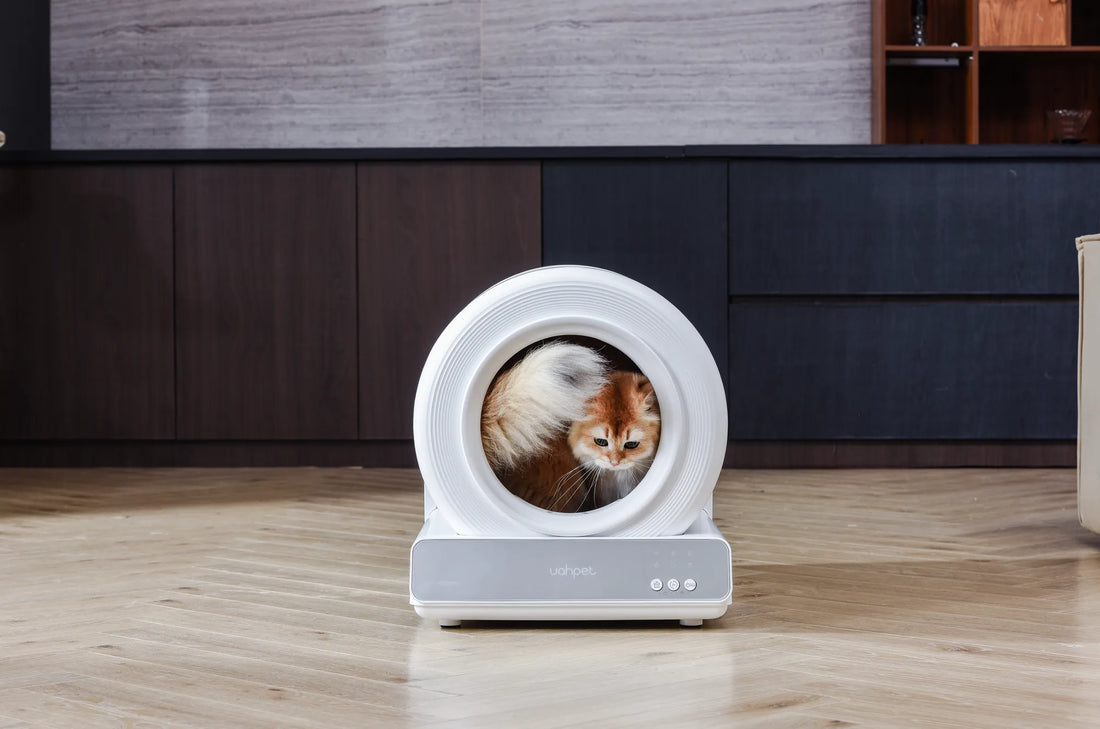If you've ever walked into your home only to find an unwelcome surprise outside your cat's litter box, you're not alone. Many cat owners face the perplexing issue of their feline friends suddenly deciding to poop outside their designated area. This behavior can be frustrating, but understanding the underlying causes is the first step toward resolving it.
Medical Issues
One of the most common reasons for a cat to start pooping outside the litter box is an underlying medical condition. Cats are masters at hiding discomfort, so any change in their bathroom habits could be a sign that something is wrong. Conditions such as urinary tract infections, gastrointestinal problems, or even arthritis can make it painful or difficult for your cat to use the litter box. If your cat is experiencing pain while defecating, they may associate the litter box with discomfort and avoid it altogether.
It's crucial to consult your veterinarian if you notice any sudden changes in your cat's bathroom habits. A thorough examination can help rule out or diagnose any medical issues that might be causing the problem. Early intervention can prevent the condition from worsening and help your cat return to their normal routine.
Stress and Anxiety
Cats are creatures of habit, and any disruption to their environment can lead to stress and anxiety. Changes such as moving to a new home, introducing a new pet or family member, or even rearranging furniture can cause your cat to feel unsettled. When a cat is stressed, they may exhibit a range of behaviors, including pooping outside the litter box.
To help your cat cope with stress, try to maintain a consistent routine and provide a safe, quiet space where they can retreat. Using calming products, such as pheromone diffusers, can also help reduce anxiety. If the stressor is unavoidable, such as a new baby or pet, gradually introduce the change and give your cat time to adjust.
Litter Box Preferences
Cats can be quite particular about their litter box preferences. If your cat suddenly starts pooping outside the box, it could be a sign that they are unhappy with some aspect of their litter box setup. Factors such as the type of litter, the size and cleanliness of the box, and its location can all influence your cat's willingness to use it.
Experiment with different types of litter to see if your cat has a preference. Some cats prefer clumping litter, while others may like non-clumping or natural alternatives. Ensure the litter box is large enough for your cat to move around comfortably and is cleaned regularly. Additionally, place the litter box in a quiet, accessible location where your cat feels safe.
Territorial Marking
In multi-cat households, territorial disputes can lead to inappropriate elimination. Cats are territorial animals, and if they feel their space is being invaded, they may mark their territory by pooping outside the litter box. This behavior is more common in households with multiple cats, but it can also occur if your cat feels threatened by outdoor animals.
To address territorial marking, ensure each cat has their own litter box, plus one extra. This reduces competition and gives each cat their own space. Additionally, provide plenty of vertical spaces, such as cat trees or shelves, where your cat can retreat and feel secure. If the issue persists, consider consulting a feline behaviorist for further guidance.
Aging and Cognitive Decline
As cats age, they may experience cognitive decline, which can affect their ability to use the litter box consistently. Older cats may forget where the litter box is located or have difficulty accessing it due to mobility issues. Additionally, age-related conditions such as arthritis can make it painful for your cat to climb into the litter box.
If your senior cat is having trouble using the litter box, consider making adjustments to accommodate their needs. Use a litter box with low sides for easy access and place it in a location that is easily reachable. Providing a soft, comfortable bed near the litter box can also encourage your cat to use it. Regular veterinary check-ups can help manage any age-related conditions and improve your cat's quality of life.
Behavioral Issues
Sometimes, a cat's decision to poop outside the litter box is purely behavioral. Cats are intelligent animals, and they may develop habits or preferences that lead to inappropriate elimination. For example, if your cat has had a negative experience in the litter box, such as being startled while using it, they may avoid it in the future.
To address behavioral issues, it's important to identify and eliminate any negative associations with the litter box. Ensure the box is in a quiet, safe location and avoid disturbing your cat while they are using it. Positive reinforcement, such as treats or praise, can also encourage your cat to use the litter box consistently. If the behavior persists, consider working with a feline behaviorist to develop a tailored plan for your cat.
Understanding why your cat is randomly pooping outside the litter box is the key to resolving this frustrating issue. Whether it's a medical condition, stress, litter box preferences, territorial marking, aging, or behavioral issues, there are steps you can take to help your cat return to their normal routine. By addressing the underlying cause and making necessary adjustments, you can create a comfortable and stress-free environment for your feline friend. Remember, patience and consistency are essential as you work through this challenge with your cat.













